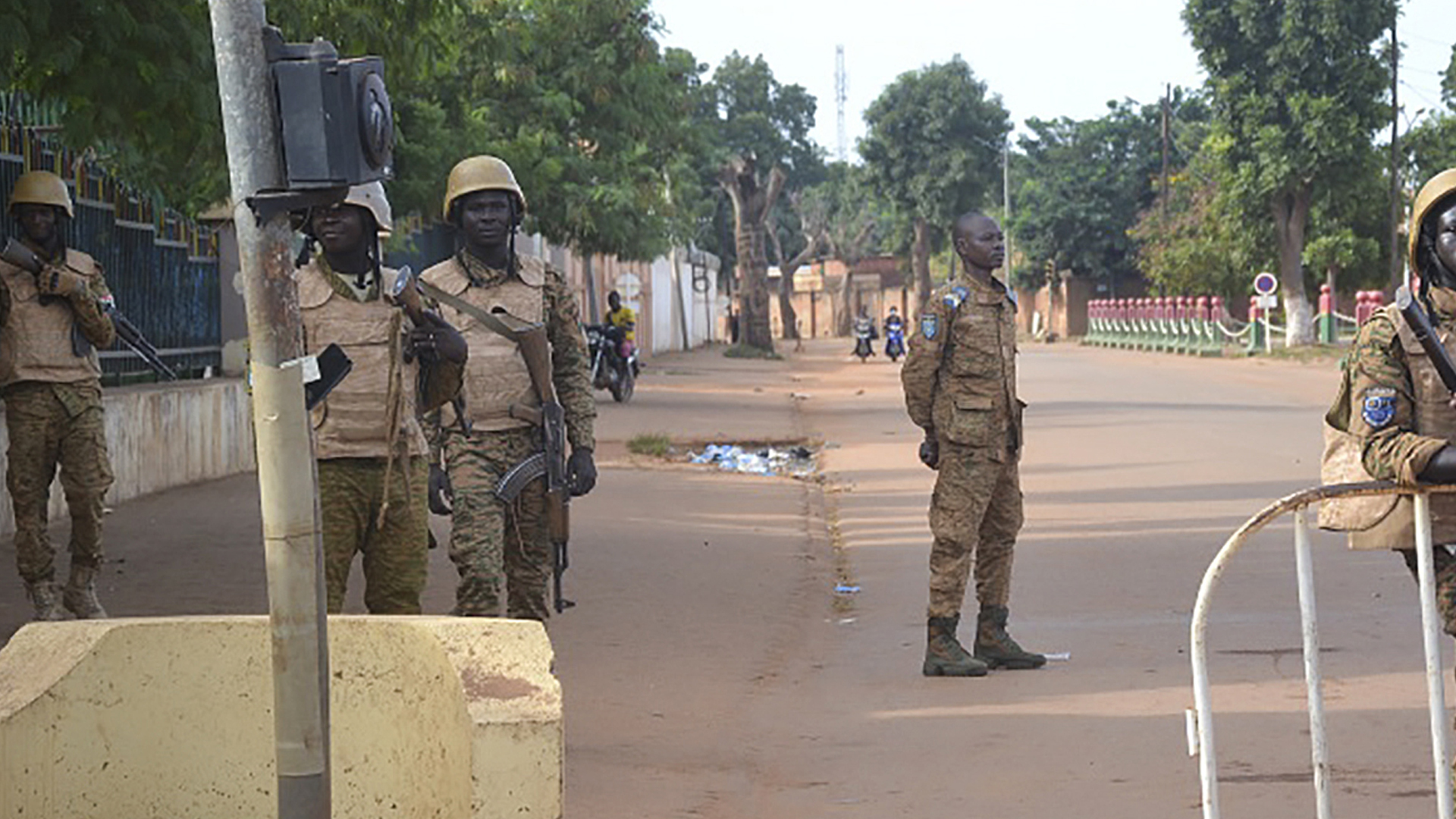Ibrahim Traore, a captain in the Burkina Faso army, announced on Friday, through a statement read on national television, that he had ousted military leader Paul-Henri Sandaogo Damiba, in the second coup this year in the West African country.
This marks the military's sixth seizure of power in just over two years in West and Central Africa, a region that has made strides in the past decade to shed its reputation as a "coup belt".
Here is a list of recent coups:
Burkina Faso
Burkina Faso's army ousted President Roc Kabore last January, blaming him for his failure to contain the violence of militant attacks.
The coup leader, Lieutenant Colonel Paul Henry Damiba, pledged to restore security, but the attacks escalated, leading to a decline in morale in the armed forces.
The 15-nation Economic Community of West African States (ECOWAS) suspended Burkina Faso's membership after the coup, but then agreed to a two-year transition period to return to civilian rule.
Financial
A group of Malian military officers led by Asimi Gueta ousted President Ibrahim Boubacar Keïta in August 2020.
The coup followed anti-government protests over the deteriorating security situation, disputed legislative elections and allegations of corruption.
Under pressure from Mali's neighbors in West Africa, the junta agreed to cede power to a civilian-led interim government tasked with overseeing an 18-month transition period to democratic elections in February 2022.
But the coup leaders clashed with the interim president, retired Colonel Bah Ndao, and orchestrated a second coup in May 2021, and Guetta, who was serving as interim vice president, was promoted to the post of president.
ECOWAS imposed sanctions that crippled Mali's already fragile economy, but lifted some sanctions last July after Mali's military rulers proposed a two-year transition period to democracy and published a new electoral law.
Chad
The Chadian army took power in April 2021 after President Idriss Deby was killed on the battlefield while visiting forces fighting rebels in the north.
Under Chadian law, the speaker of parliament was to become president, but a military council intervened and dissolved parliament in the name of ensuring stability.
Deby's son, General Mohamed Idriss Deby, was appointed interim president, tasked with overseeing an 18-month transitional period for elections.
The transfer of power led to riots in the capital, N'Djamena, which were suppressed by the army.
Guinea
Special Forces commander Colonel Mamadi Domboya ousted President Alpha Conde in September 2021. A year earlier Conde had changed the constitution to get around restrictions that would have prevented him from running for a third term, sparking widespread riots.
Domboya became interim president until democratic elections were held within 3 years.
ECOWAS rejected the timetable, and imposed sanctions on junta members and their relatives, including freezing their bank accounts.
In July, ECOWAS gave Guinea until October 22 to set a "reasonable" timetable or face additional sanctions.

